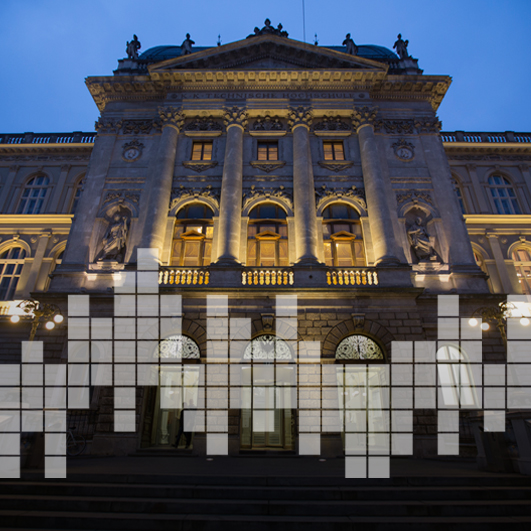![[Translate to Englisch:] [Translate to Englisch:]](https://www.tugraz.at/fileadmin/_processed_/c/3/csm_Banner_AdobeStock_612446404_Editorial_Use_Only_by-Sven_Kreutzer_Wirestock_Creators_c73d592063.jpg)
Study by TU Graz Shows that Non-Exhaust Emissions from Trains Are Not Negligible
One of the first major studies on abrasion emissions from rail vehicles shows that a lot of particulate matter contaminated with heavy metals is produced especially along railway lines.
Read moreContact
Communications and Marketing
Media Service
Barbara GIGLER
Press officer
Phone: +43 316 873 6006
Mobile: +43 664 60 873 6006
barbara.gigler@tugraz.at
Falko SCHOKLITSCH
Phone: +43 316 873 6066
Mobile: +43 664 60 873 6066
falko.schoklitsch@tugraz.at
Philipp JARKE
Phone: +43 316 873 4566
Mobile: +43 664 60 873 4566
philipp.jarke@tugraz.at
Susanne FILZWIESER
currently on maternity leave

Accident Research: Running Elementary School Children Need 1.8 Metres to Stop
Researchers from Graz University of Technology and "sicher unterwegs" are providing precise data on the movement patterns of children travelling on foot in road traffic. The findings aim to improve the reconstruction and prevention of accidents.
Read more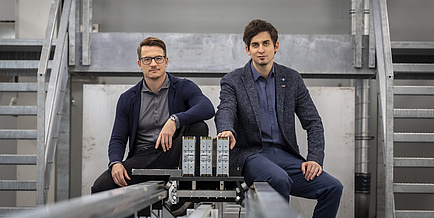
Battery4Life: New COMET centre led by TU Graz
Researchers at the Vehicle Safety Institute will team up with national and international partners to make batteries safer, extend their service life and make them more sustainable. The FFG, the provinces Styria and Upper Austria as well as companies are investing about 19 million euros in total.
Read more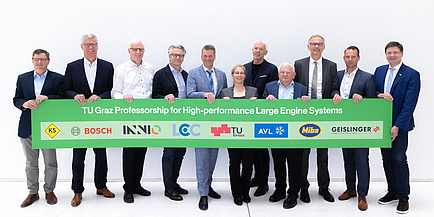
New Professorship for Large Engines Research at Graz University of Technology
As Professor for "High-performance Large Engine Systems", Nicole Wermuth is researching sustainable fuels, emission reduction and higher efficiencies for the green transformation of large engines.
Read more
New Security Loophole Allows Spying on Internet Users Visiting Websites and Watching Videos
Online activities can be monitored in detail simply by analysing latency fluctuations in the internet connection, researchers at Graz University of Technology have discovered. The attack works without malicious code or access to the data traffic.
Read more
Energy-Efficient Building Design in Real-Time Simulation
An interdisciplinary team at TU Graz offers revolutionary insight into the design of sustainable buildings. The advantages and disadvantages of different construction measures are visualised in real time using VR simulation.
Read more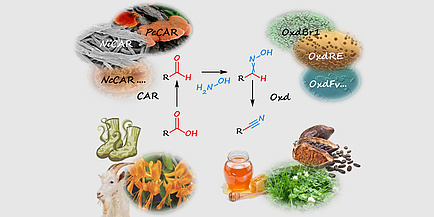
Enzymes Instead of Cyanide: Researchers Develop Biocatalytic Process for Nitrile Production
A research team from TU Graz and the Czech Academy of Sciences has used two enzymes to eliminate the need for highly toxic cyanide in the production of nitriles.
Read more
New Shared Master’s Programme in Data Science at TU Graz and the University of Graz
Based on the core subjects of computer science, mathematics and statistics and taught in English, the NAWI Graz Master’s programme offers profound yet practical education in data analysis, optimisation and machine learning, supplemented by ethical and legal principles.
Read more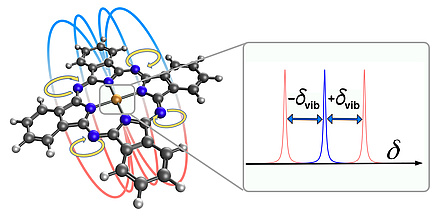
Switching Nanomagnets Using Infrared Lasers
Physicists at TU Graz have calculated how suitable molecules can be stimulated by infrared light pulses to form tiny magnetic fields. If this is also successful in experiments, the principle could be used in quantum computer circuits.
Read more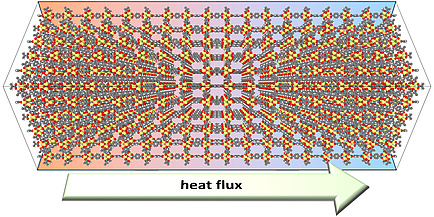
TU Graz Revolutionises Simulation of Metal-Organic Frameworks (MOFs)
Due to the complex structures of microporous crystals known as MOFs, reliable simulations of their properties have been difficult until now. Machine learning provides the solution.
Read more
